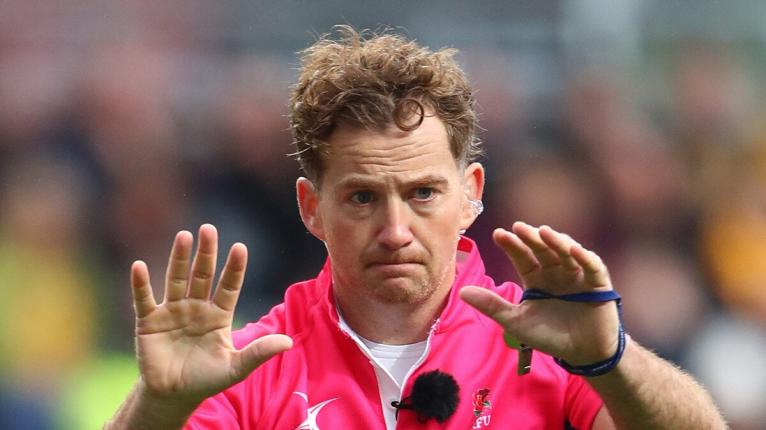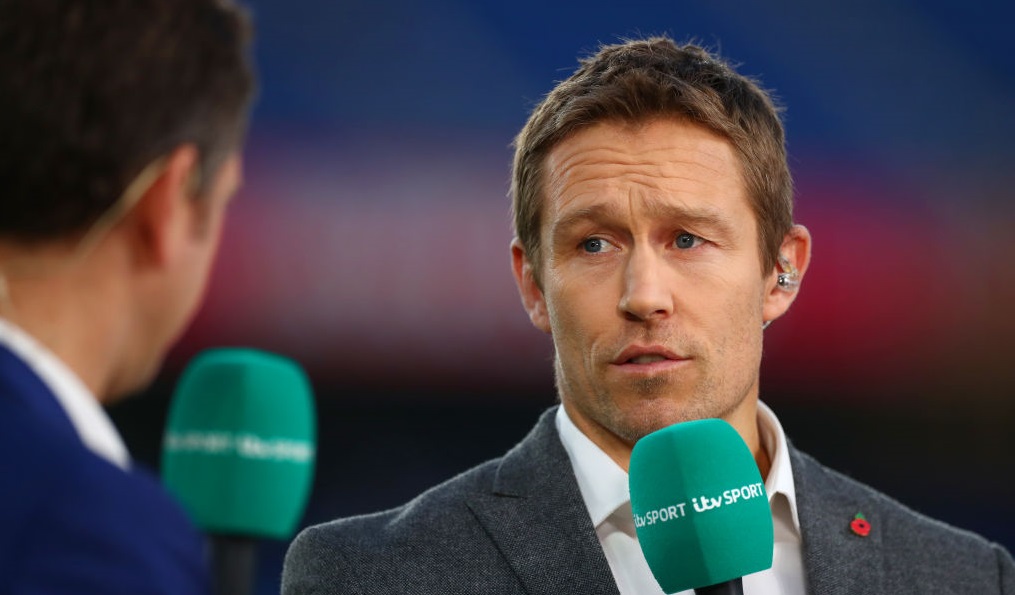Ref Watch: Pundits but not experts

We’ve had 16 games over two weeks in an enthralling World Cup and it is time to take stock.
There have of course been plenty of talking points from a refereeing perspective – many of which have centred on the head contact debate – but what else has caught the eye?
The Main Men
Refereeing the World Cup final is the goal of every official that picks up a whistle in an international and plenty that get nowhere near that far – this one included!
But to date only eight have received the ultimate officiating accolade with South Africa’s Andre Watson twice at the helm – in 2003 and in the eyes of many less controversially so in 1999.
With four years between competitions, there is a fair body of evidence with which to rank the officials. I venture to suggest that Craig Joubert’s appointment to the 2011 final has been the only mild surprise during the 36 years that have passed since the late Kerry Fitzgerald took charge of New Zealand and France in 1987.
We can with some confidence therefore predict that one of Wayne Barnes or Jaco Peyper will accompany the 2023 finalists at the Stade de France next month. What we don’t yet know is which one…
Barnes began his tournament this weekend when he took charge of Ireland and Tonga. While his style is not for everyone, his supreme calmness and ability to think in logical straight lines is a real asset. He communicates clearly and while you may not agree with all his calls you are in no doubt why he makes them.
Barnes – at his fifth World Cup – is the world’s most experienced referee and it shows. He has the respect of everyone and his standards rarely drop. After the mild hysteria stoked by social media and some TV pundits during the opening week it was comforting to see him in charge since regardless of the complexity involved in modern law interpretations, he is totally on top of his job.
I thought South Africa’s sole representative in this year’s referee group also did a solid job when asked to deal with the pressure of France v New Zealand on opening night.
Peyper is equally as unflappable as his English counterpart and very accurate in law. His manner – like the London-based barrister – is not for everyone but he gets very little wrong which is surely a good starting point. His communication is minimal and to the point but his message gets across and the players know where they stand. Lots to like.
Across the rest of the ref pack I enjoyed the performances of Ben O’Keeffe and Luke Pearce during the opening two rounds of action.
Taking charge of France v Uruguay, a game which eventually proved harder work for the hosts than many predicted, O’Keeffe showed excellent communication skills and ensured both sides remained focused on a night when frustration and ill-discipline could easily have crept in. This match involved a head contact yellow card which the bunker team chose not to upgrade – but of course this is outside the referee’s control.
Pearce impresses me more with each passing season and there was again plenty to like in his handling of Australia v Georgia. The young English official is really good at keeping the tempo high in his games – next time you see him look out for how often he hustles the players to get the ball into scrums and lineouts and not to create unnecessary down time. A possible final referee in 2027?
Referee in the TV team?
Nigel Owens periodically joined TV coverage of Japan 2019 and he has since intermittently been seen on our screens during big international occasions.
Four years on ITV’s coverage in the UK features Irish-born former Premiership and international referee JP Doyle in the same role.
As a former referee, I generally enjoyed Owens’ input as he appeared to be operating with a brief to explain incidents through a referee’s eyes and to help unpick complicated situations for a viewing audience many of whom probably watch rugby union on a very occasional basis.
He also took a sympathetic approach to dealing with onfield errors and struck a good balance between explaining what should have happened while also putting across suggested reasons why the man with the whistle had reacted differently.

By contrast – perhaps through a change in editorial policy – I am really uncomfortable with Doyle’s role. At the point that the commentary team reveal he is messaging them from London to nit-pick tiny pieces of detail in the referee’s performance is he really helping anyone?
He feels like the most critical referee assessor around who instead of privately debriefing the referee on a one-to-one basis post-match is instead on a soapbox lecturing the world by the medium of TV.
Where football leads rugby union follows…
Pundits but not experts…
It is now 20 years since England won the World Cup and for a variety of reasons it really is time to pension off those involved from the TV pundit’s sofas.
Jonny Wilkinson seems a lovely bloke and he probably has plenty of insight to offer but every time I hear him speak I feel like I am lost in a secondary school and have inadvertently wandered into a sixth form psychology lesson.
At the point that his response to a question about kicking a drop goal became a discourse on ‘communicating with the ball’ I’m afraid I was done.
Given that the law-makers response to reducing head contact has been the dominant feature of professional rugby’s development in the last five years is it unreasonable to expect Sir Clive Woodward and his mate Lawrence Dallaglio to grasp the basics of what is going on?
They both seem completely unable to get beyond phrases like “it was an accident” or “that’s a rugby incident for me” or “he’s not a player that would do that deliberately.”
Love it or loathe it, intent is no longer a factor that the officials consider when head contact takes place.















































Frustrating to watch the bunker and the ref miss what the crowd and players see. That Australian try Vs Fiji that starts with the players and the crowd complaining about the ruck.
England winning the World Cup is 100% the worst thing to have happened to rugby punditry.
Why?